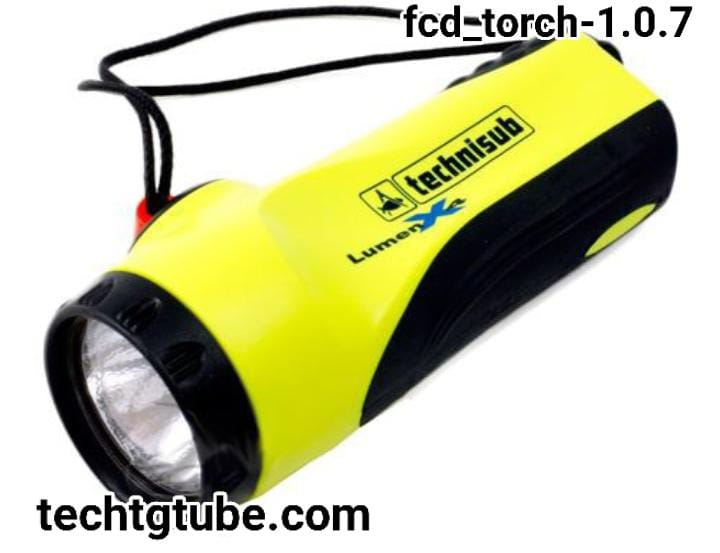In the realm of machine learning and deep learning, frameworks and libraries play a crucial role in simplifying the development process. One such library that has garnered attention is fcd_torch-1.0.7. This article will delve into what fcd_torch-1.0.7 is, its features, installation process, practical applications, and its significance in the broader landscape of artificial intelligence.
What is fcd_torch-1.0.7?
fcd_torch-1.0.7 is a specific version fcd_torch-1.0.7 of a library designed to facilitate the implementation of Fast Convolutional Networks (FCN) using PyTorch. FCNs are a type of neural network particularly well-suited for tasks in computer vision, such as image segmentation, object detection, and classification. PyTorch, on the other hand, is a popular open-source machine learning framework that provides a dynamic computation graph and is known for its flexibility and ease of use.
The fcd_torch library provides optimized implementations of convolutional layers and various architectures that leverage the efficiency of FCNs. By offering a streamlined interface for building and training these networks, fcd_torch-1.0.7 enables researchers and practitioners to focus on model design and experimentation without getting bogged down in low-level details.
Key Features of fcd_torch-1.0.7
This version of fcd_torch comes with several enhancements and features that set it apart from its predecessors:
Installation Process
Installing fcd_torch-1.0.7 is fcd_torch-1.0.7 straightforward, assuming you have a working installation of PyTorch. The installation process typically involves using pip, the Python package installer. Here’s a step-by-step guide:
- Ensure PyTorch is Installed: Before installing fcd_torch-1.0.7, make sure you have PyTorch installed in your environment. You can check this by running import torch in a Python shell.
- Install fcd_torch: Use the following command to install fcd_torch-1.0.7:
pip install fcd_torch==1.0.7
- Verify the Installation: After installation, you can verify that the library is installed correctly by importing it in Python:
import fcd_torch
print(fcd_torch.version)
This should output 1.0.7, confirming that you have successfully installed the library.

Practical Applications of fcd_torch-1.0.7
The applications of fcd_torch-1.0.7 are fcd_torch-1.0.7 extensive and span various domains within artificial intelligence. Below are some of the key areas where this library can be applied:
Image Segmentation
One of the primary applications of FCNs is in image segmentation. In this context, fcd_torch-1.0.7 allows users to develop models that can classify each pixel in an image into different categories. This is particularly useful in fields like medical imaging, where segmenting different tissues or identifying tumors can assist in diagnosis and treatment planning.
Object Detection
FCNs are also employed in object detection tasks, where the goal is to identify and locate objects within an image. Using fcd_torch-1.0.7, practitioners can build sophisticated detection models that leverage deep learning to achieve high accuracy and efficiency.
Video Analysis
With the rise of video content, analyzing fcd_torch-1.0.7 video frames for various tasks such as activity recognition and object tracking has become increasingly important. fcd_torch-1.0.7 can be utilized to create models that process video data, taking into account the temporal aspect of visual information.
Autonomous Driving
In the autonomous driving sector, real-time image processing and analysis are critical. FCNs can help in detecting road signs, lane markings, and other vehicles, contributing to the overall safety and efficiency of autonomous systems.

Robotics
Robotic systems often rely on visual inputs to navigate and interact with their environment. Using fcd_torch-1.0.7, developers can create fcd_torch-1.0.7 models that enable robots to recognize objects, avoid obstacles, and perform tasks that require visual understanding.
Comparing fcd_torch-1.0.7 with Other Libraries
When considering fcd_torch-1.0.7, it is essential to compare it with other popular libraries and frameworks in the field of deep learning, particularly those that focus on computer vision.
TensorFlow
TensorFlow is another widely-used library for machine learning and deep learning. While TensorFlow provides robust capabilities and a vast ecosystem, PyTorch, and by extension fcd_torch, is often preferred for its intuitive interface and dynamic computation graph. This makes it easier to prototype and experiment with new ideas.
Keras
Keras, now integrated with TensorFlow, offers a user-friendly API for building neural networks. However, it may not offer the same level of performance optimization specifically for FCNs that fcd_torch-1.0.7 does. For users focusing on fast convolutional networks, fcd_torch is a more targeted solution.
MXNet
Apache MXNet is another deep learning framework that is optimized for both efficiency and scalability. While MXNet supports a wide range of models, it does not specifically target FCNs in the same way as fcd_torch-1.0.7. Thus, users specifically interested in FCNs may find fcd_torch to be a more suitable choice.
Performance Benchmarks
Performance is a critical aspect when evaluating any machine learning library. fcd_torch-1.0.7 has been benchmarked against several tasks, showcasing its efficiency and speed. For instance, in image segmentation tasks, models built using fcd_torch demonstrate faster training times compared to traditional methods, while maintaining or even improving accuracy.
Moreover, the library’s ability to handle large datasets without significant degradation in performance is another key benefit. This is particularly important for applications requiring real-time processing and decision-making.
Challenges and Limitations
While fcd_torch-1.0.7 offers numerous advantages, it is not without its challenges. One of the primary limitations is the steep learning curve associated with mastering deep learning concepts. For newcomers, understanding the intricacies of convolutional networks and their implementation can be daunting.
Additionally, while the community around fcd_torch is growing, it may not be as extensive as those for more established libraries like TensorFlow or PyTorch. This could impact the availability of resources such as tutorials, forums, and third-party tools.
Future Prospects
Looking ahead, the future of fcd_torch and similar libraries appears promising. As machine learning and artificial intelligence continue to advance, the demand for efficient and effective tools will only increase. The developers of fcd_torch are likely to focus on enhancing performance, expanding functionality, and improving user experience.
Furthermore, with the rise of new applications in fields such as augmented reality and advanced robotics, the role of optimized libraries like fcd_torch will become even more critical. As researchers explore new architectures and methodologies, fcd_torch-1.0.7 is well-positioned to adapt and evolve.
Conclusion
In summary, fcd_torch-1.0.7 is a powerful library that facilitates the implementation of Fast Convolutional Networks within the PyTorch ecosystem. With its optimized performance, modular design, and comprehensive documentation, it stands out as a valuable tool for practitioners in the fields of computer vision and deep learning. While there are challenges to overcome, the potential applications and future developments of fcd_torch make it a significant player in the AI landscape.
As technology continues to advance, staying updated on tools like fcd_torch-1.0.7 will be essential for those looking to push the boundaries of what is possible with machine learning and artificial intelligence.
Also read this; tips-and-tricks-wutawhealth
FAQs About fcd_torch-1.0.7
What is fcd_torch-1.0.7 used for?
fcd_torch-1.0.7 is primarily used for implementing Fast Convolutional Networks in various tasks such as image segmentation, object detection, and video analysis within the PyTorch framework.
How do I install fcd_torch-1.0.7?
You can install fcd_torch-1.0.7 using pip by running the command pip install fcd_torch==1.0.7 in your terminal, assuming you have PyTorch already installed.
What are the benefits of using fcd_torch over other libraries?
fcd_torch offers optimized performance for Fast Convolutional Networks, is compatible with PyTorch’s flexible framework, and provides extensive documentation, making it easier for users to implement complex models.
Can fcd_torch be used for real-time applications?
Yes, fcd_torch-1.0











